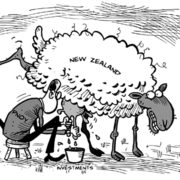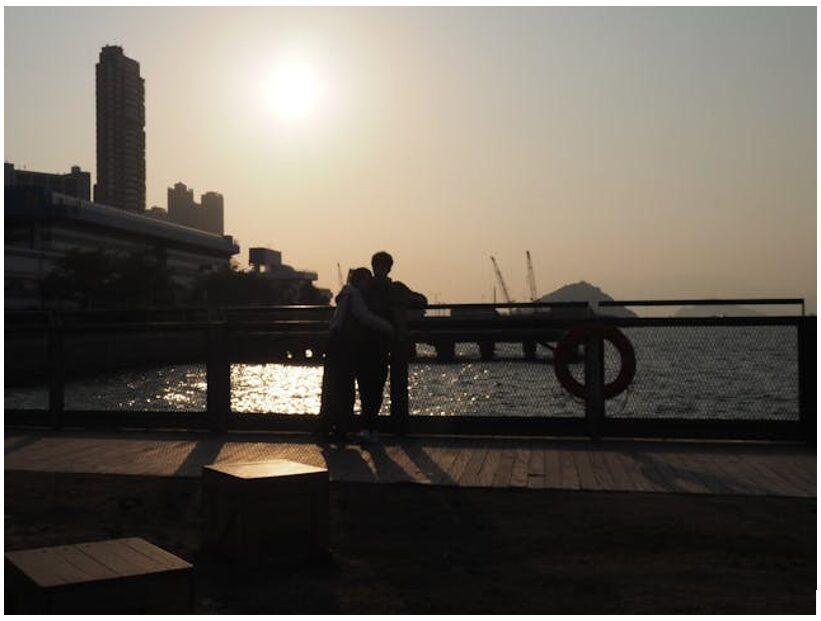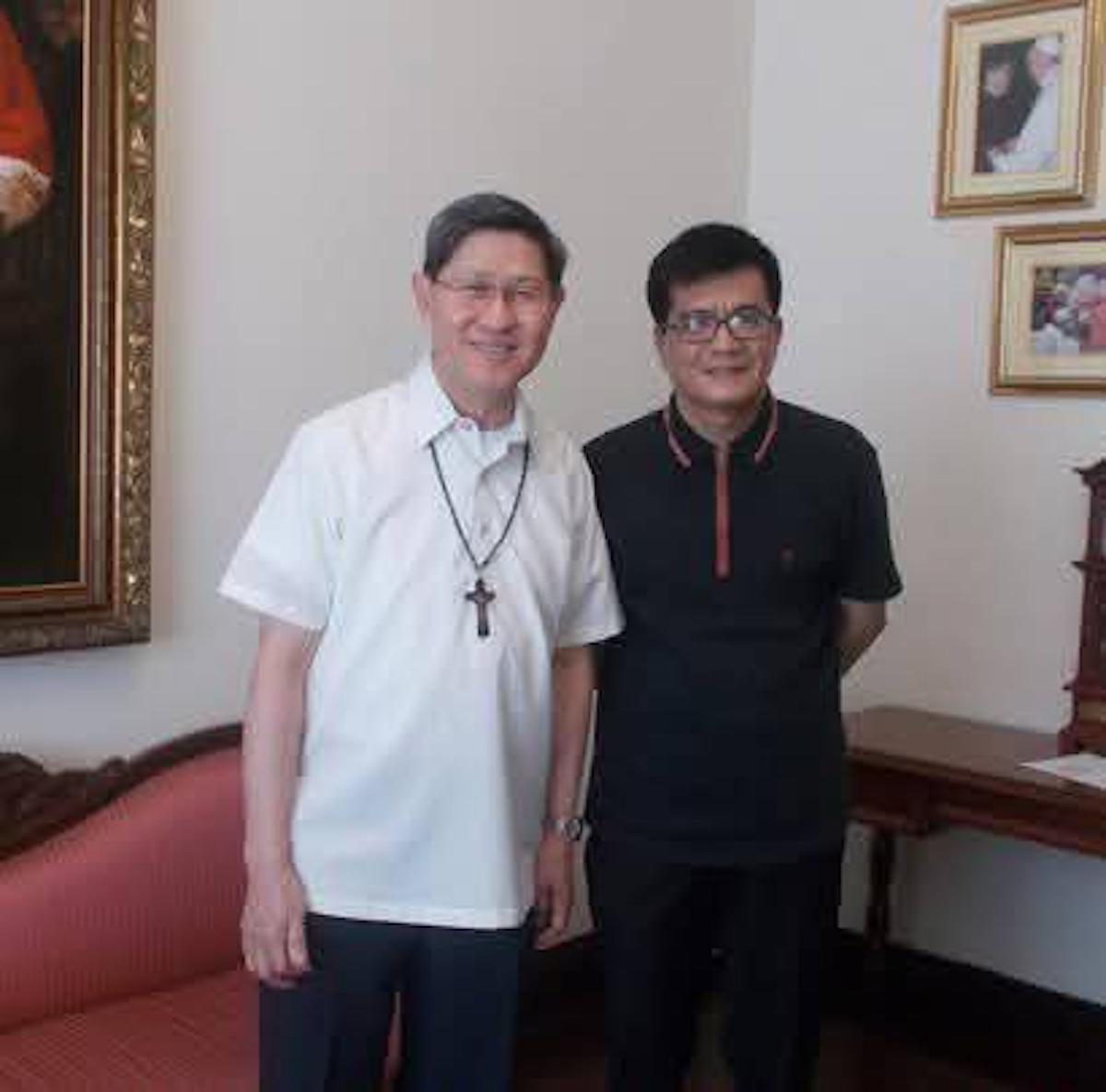HISTORICALLY, it has long been a natural occurrence in Philippine politics that family members or relatives of a political figure would eventually run for a position in government — more popularly known as “political dynasties.”
With the 2013 elections fast approaching, expect the same scenario to unravel, as several prominent (both old and new) politicians have already endorsed their spouses, family members and relatives’ intentions to run for office in key positions, both local and national.
However, there are those who have sought the help of the Supreme Court to push the House of Representatives to come up with a law which “implements the constitutional ban on political dynasties.”
Led by former vice president Teofisto Guingona, Jr., the group filed a 26-page petition for mandamus, saying that “it is the duty of the Senate and House of Representatives to define a political dynasty and craft an enabling law for Article II, Section 26 of the 1987 Constitution, which provides that ‘the State shall guarantee equal access to opportunities for public service and prohibit dynasties as may be defined by law,'” reports Philstar.com.
The petitioners argued that: “While it is discretionary upon Congress to define a political dynasty, the enactment of a law prohibiting and defining political dynasties is mandatory upon Congress and it has no unlimited discretion as to when to enact the same.”
Among other petitioning group are Volunteers Against Crime and Corruption (VACC) founding chairman Dante Jimenez, lawyer Leonard de Vera, Eduardo Bringas, Vicente Velasquez and Raymundo Jarque, who decided to seek action from the Supreme Court because “for the past 25 years, Congress has neglected the enactment of a law prohibiting political dynasties, which the Constitution itself enjoins as a duty resulting from its office.”
Congress’ inaction has empowered these political clans to dominate government posts, the group further claimed.
The petitioners also cited a study where 584 public officials from 169 prominent families were identified. These officials served in government from 1946 to 1963 and include seven presidents, 42 senators and 147 congressmen, according to the report.
The group further emphasized that the framers of the 1987 Constitution intended “to eliminate political dynasties, as explained in the plenary session of the 1986 Constitutional Commission by commissioner Jose Nolledo,” as reported by Philstar.
VACC has urged family members and relatives of current officials “to withdraw their candidacy and give way to other equally or more qualified senatorial candidates.”
Bayan Muna party-list Rep. Teddy Casiño has authored House Bill 3413, or the act prohibiting the establishment of political dynasty. The bill defines political dynasty as something that occurs when ” two or more persons who are spouses or are related within the second civil of consanguinity or affinity run simultaneously for elective public.”
However, Casiño laments Malacañang’s “lack of support” for the anti-political dynasty bill, saying that the Palace “imposes its will” if it seeks Congress to approve a particular measure but washes its hands off on matters pertaining to legislative proposals.
Sen. Sergio Osmeña expressed a pessimistic view about the anti-dynasty bill, based from experience. He said that a bill was filed in 1995 and that a colleague was already working on committee report that time, only to be told that it “would not see the light of day in their chamber.”
“We had already a very good definition of what is a dynasty when I first became senator in 1995. We were about to file a committee report. I don’t know if Orly (Mercado) was chairman, but he called his counterpart in the House to ask if they will approve the bill. He was told: Don’t bother to send us that bill, that will never be passed in the House. So the bill was junked and archived,” Osmeña said.
In the 15th Congress, Sen. Miriam Defensor Santiago also filed an anti-political dynasty bill (Senate Bill 2649) — a measure that was included in a public hearing conducted by the chairman of the committee on electoral reforms and people’s participation, Sen. Aquilino Pimentel III.
Osmeña’s bill had similar provisions on his bill as Sen. Santiago’s, prohibiting “any person related within the second degree of consanguinity or affinity, whether legitimate or illegitimate, to an incumbent elective official seeking reelection to hold or run for any elective office in the same office and in the same election.”
However, the proposed legislation excludes national positions as president, vice president and senator.
“Based on the definitions of degrees of relationship, the first degree would include the spouse, children and parents of the person; second degree would involve the siblings, grandparents and grandchildren of the person; third degree includes the great grandchildren, nephews and nieces, uncles and aunts, and great grandparents of the person; and fourth degree would cover grand nephews and nieces, first cousins, great uncles and aunts, and great-great grandparents,” says Philstar.com.
According to experts, political dynasties often result to an elite-democracy — diminishing chances of victory among candidates who belong to a minority during elections. When political dynasties are finally put to an end, more options are believed to be available for voters and a greater number of Filipinos would be better represented.
Casiño said that there lies a monopoly of economic and political power when a political dynasty exists because family members tend to share the same interests.
However, ironically, it is the same interests that (sometimes) work for a municipality. For example, if a certain politician manages to lead well, he would gain the trust of his constituents. Sometimes it is even the public who urge a family member of an outgoing politician to run as a replacement because they believe that the kin will continue the effective projects his relative did.
Noting that political dynasties exist in other countries as well, Senator Juan Ponce Enrile mentioned in an interview that if there is nothing wrong in following the passion of one’s parents, then politics should not be any different. Incumbent public servants who came from a hierarchy of influential politicians also say that it is unfair to generalize them because every person is different and some of them really have genuine intentions of serving the public since they grew up exposed that environment.
But regardless of political dynasties, we should keep in mind that it is still voting public that has the power to decide and choose their leaders. And as much as the power of the vote trumps all, it is also our prerogative to change the course of the political landscape in the country and to use our constitutional right to encourage those, (regardless of political affiliation) who would best represent our collective needs and interests, as a people and as a nation.
(AJPress)







